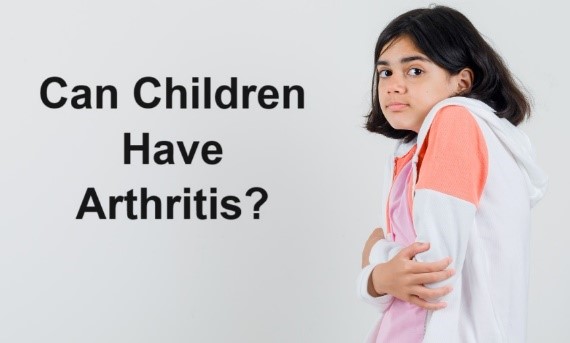
Arthritis is a common joint problem among adults and seniors. However, it doesn’t mean it cannot happen to children. This article explores everything important about arthritic issues in children.
If you want to know about this in detail, continue to read till the end.
What is juvenile idiopathic arthritis?
As already evident by the name, this is a form of arthritis that happens in children. This is called juvenile idiopathic arthritis. Idiopathic is the adjective that describes the fact that the exact cause of this arthritic condition in children is unknown
Generally, if a child already has a very weak immune system and they have comorbidity as well, this child can develop JIA over time.
How does JIA affect children?
If a child has JIA, they have to deal with joint pain and swelling. Furthermore, there will be mobility issues. Fatigue is also a very common symptom of the same disorder. The affected child will feel exhausted faster than any other child.
These issues often develop when the child is in adolescence. In some cases, JIA can also cause growth and development impairments in children. This can result in unequal limb lengths or delayed growth and other problems.
JIA also causes eye inflammation with vision impairment and other eye-related problems.
Symptoms of arthritis in children
Certainly, here are the symptoms of juvenile idiopathic arthritis (JIA) without explanations:
- Joint pain
- Joint swelling
- Limited range of motion
- Joint stiffness
- Warmth and redness in joints
- Fatigue
- Growth problems
- Fever
- Eye inflammation
JIA can affect any of your joints like rheumatoid arthritis. If you are having unexplained pain in your joints, visit the following link: arthroscopy treatment in Delhi.
Treatments for pediatric arthritis
A case of JIA can be treated with any of the following options in medical science.
The doctor you would approach might start with medications to reduce the effects of inflammation. Physical therapy is another option for treating inflammatory issues like swelling, pain and stiffness.
Physiotherapy includes massage, exercise and heat-ice compressions. Ice helps reduce swelling and heat works best on stiffness issues.
Sometimes, doctors can also utilise immobilisation techniques to treat inflammatory issues like splints, braces, etc. These aids offer stability and promote healing.
In the wake of symptoms, lifestyle changes can also be initiated. You will be recommended to exercise regularly, eat healthy, take enough rest, and manage chronic stress.
Under chronic and intense circumstances, a surgical intervention could be performed either to replace the inflamed joint or other things like a joint fusion treatment.
For more personalised guidance, you can directly talk to a medical health advisor.
Is knee swelling one of the symptoms of juvenile idiopathic arthritis in a child ?
Yes.
If your child has knee swelling without the occurrence of harmful external traumas, this could be a symptom of juvenile idiopathic arthritis.
In other words, suppose your child has knocked themselves down on the floor very hard and afterwards, the hurt knee becomes swollen and painful. In that case, it is not JIA at all. Give it enough rest with general anti-inflammatory treatments and the problem will go away automatically.
However, if there is no fall like this one and still your child’s knees have started developing issues like pain, swelling, and inflammation, ensure that you take them to a good doctor. There is a more than 50% chance that it could be due to the condition of JIA.
JIA is the name of a medical condition where a child’s joints have started becoming inflamed automatically without the existence of any apparent cause.
How to cure a normal knee injury at home
If a knee is hurt, it might be treated at home.
Use ice compression as it will reduce swelling. It happens because ice numbs the affected area and further contracts the nearby blood vessels. Such contractions lead to a reduction in the inflammatory hormones travelling through veins to the hurt part.
This reduction in certain hormones promotes the anti-inflammation process and you won’t have to deal with pain and swelling.
Furthermore, elevation is also effective at curtailing inflammatory issues. Just lie down on the bed or anywhere comfortable and flat and hold the affected leg at some elevation. This reduces pain, swelling and fluid accumulation around the hurt part of your knee.
Rest and hydration must not be skipped as well. Give enough rest to the hurt part. Don’t strain it as it will take some time to heal and get back to normal. Hydration is important as our body needs fluid content to deal with unwanted health conditions.
Pay attention to sleep. If your child has hurt their knee, ensure they are getting enough sleep each night. When we sleep, our bodies go into their deep relaxation modes, correcting most health problems themselves without external interventions.
Can juvenile idiopathic arthritis be prevented?
As of now, medical science cannot pinpoint the cause of this pediatric form of arthritis so it cannot be prevented in the traditional sense that you will take certain precautions and it will not happen to you.
It is rather an autoimmune disorder that resembles rheumatoid arthritis in its genesis.
However, early detection and immediate intervention can help manage symptoms, minimise troubles and improve long-term outcomes for children with JIA. A few lifestyle modifications may also assist in reducing the likelihood of flare-ups.
For pregnant women, it is recommended that they pay attention to their health through proper meals, sleep and exercise. Ensure you take enough calcium, vitamin D, vitamin E, protein, dietary fibre and all essential micro and macronutrients.
If you stay healthy during your pregnancy, your child will automatically stay away from various health problems like various autoimmune disorders. However, nobody can alter the genetic factor.
Visit the following link if you need to see the right doctor: best pediatric orthopedic doctor in Delhi.
Can osteoarthritis happen in children?
No; under normal circumstances, a child cannot develop OA or osteoarthritis. It is primarily an age-related disorder. When a joint like a knee has sustained wear and tear because of prolonged use and the structure becomes inflamed and stiff with mobility issues, this degenerative condition of the knee or any other joint is referred to as osteoarthritis.
How to keep your child away from arthritic problems
Let’s conclude this discussion here.
You should take care of the diet, physical activity, sleep adequacy, and mental health to keep the problem of JIV or other arthritis issues away from your child.
Make sure you keep your child in a well-maintained and hygienic environment so the immune system doesn’t get compromised.





